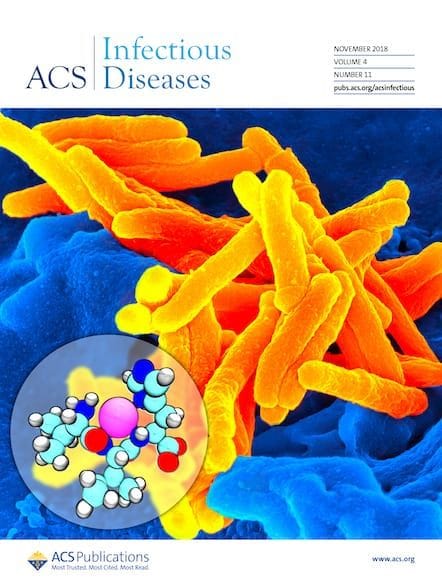In honor of the journal's 10th anniversary, check out these interviews with authors of some of the most influential articles over the past decade.

ACS Infectious Diseases is highlighting some of the most-influential and -cited articles from over the past ten years. As part of the journal’s 10th Anniversary celebration, we took the opportunity meet with the authors of these articles to learn more about their research, why they chose to publish in ACS Infectious Diseases, and their outlook on the field of infectious diseases research in the coming decade.
In 2024, ACS Infectious Diseases is celebrating 10 years of publishing articles encompassing different areas of research on infectious diseases, including research on pathogens, host-pathogen interactions, drug resistance, therapeutics, diagnostics, vaccines, anti-infective biomaterials, drug-delivery systems, and other biomedical technology developments pertaining to infectious diseases. In celebration of this milestone, the journal has compiled a Collection of the most-cited articles from each year since the launch of the journal in 2015. As Editor-in-Chief Jayanta Haldar remarks in his Editorial, this Collection “represents a milestone, reflecting the dedication and innovative spirit of researchers striving to address the most pressing challenges in the field of infectious diseases.”
Learn more about the authors of these influential articles and their research below.
Prof. Mark Blaskovich
Top-Cited Article: Nanomaterials: The New Antimicrobial Magic Bullet
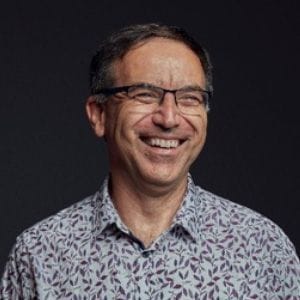
Prof. Mark Blaskovich is an ‘antibiotic hunter’ and Director of Translation for the Institute for Molecular Bioscience at The University of Queensland, Australia. A medicinal chemist with 15 years of industrial drug development experience, since 2010 he has been developing new antibiotics, non-antibiotic therapies, and diagnostics to detect and treat resistant bacterial and fungal infections.
Prof. Cyrille Boyer
Top-Cited Article: Rational Design of Single-Chain Polymeric Nanoparticles That Kill Planktonic and Biofilm Bacteria
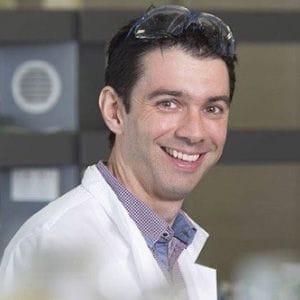
Prof. Cyrille Boyer, an Australian Laureate Fellow, and Highly Cited Researcher at UNSW, holds a professorial position within the School of Chemical Engineering. His pioneering research delves into the precise synthesis of functional macromolecules using photocatalysts, with diverse applications spanning nanomedicine, advanced materials, and energy storage. Particularly noteworthy is his focus on developing synthetic polymers endowed with bioactive properties, like antimicrobial activity, to combat fungal and bacterial infections effectively. He has published over 400 articles and has an H-index of 104. He is also a member of many editorial boards, including ACS Infectious Diseases.
Dr. R.E.W. (Bob) Hancock OC, OBC, FRSC
Top-Cited Article: New Perspectives in Biofilm Eradication
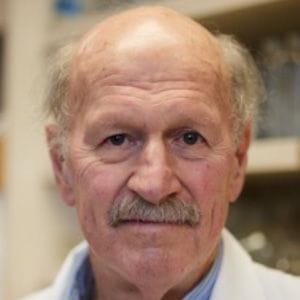
Dr. R.E.W. (Bob) Hancock is a UBC Killam Professor of Microbiology & Immunology. His research interests include small cationic host defense peptides as novel antibiofilm agents and the systems biology of innate immunity, inflammatory diseases, sepsis, and Pseudomonas. He has published >840 papers, has 86 patents awarded, and was ranked 4th worldwide amongst microbiologists on Research.com.
Prof. Mary Jackson
Top-Cited Article: Direct Inhibition of MmpL3 by Novel Antitubercular Compounds
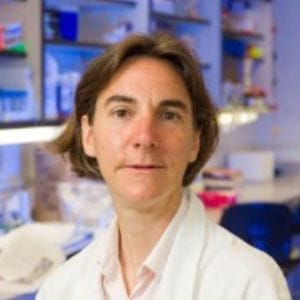
Prof. Mary C. Jackson is a Professor of Bacteriology at Colorado State University in Fort Collins. She earned a Ph.D. degree in Biochemistry and Cellular and Molecular Biology (1998, Pasteur Institute, Paris, France). Her laboratory focuses on the elucidation of critical pathways leading to the biosynthesis and export of (glyco)lipids, fatty acids, and polysaccharides in Mycobacterium tuberculosis and other mycobacterial pathogens of clinical interest with the goal to inform novel therapeutic strategies.
Prof. Sebastian Leptihn
Top-Cited Article: Synergistic Effects of Phage–Antibiotic Combinations against Citrobacter amalonaticus
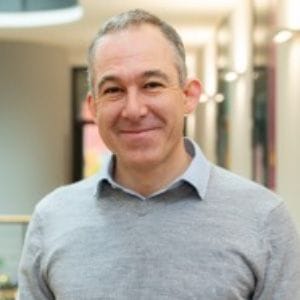
After many years abroad, in Singapore, Oxford, and China, Professor Sebastian Leptihn is now back in Germany, working on phages as biological antibiotics. Phages can be employed as bacterial killers in an approach called phage therapy. He also enjoys teaching biochemistry and microbiology as a professor in Erfurt (Germany) and at the University of Southern Denmark, in Odense.
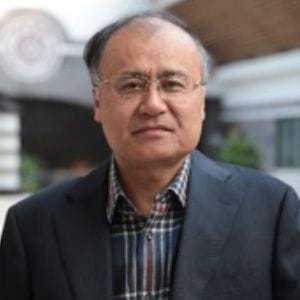
Prof. Gang Liu got his Ph.D. from Beijing Medical University in 1994 and had postdoctoral appointment at The Scripps Research Institute and University of California Davis. He built his laboratory in 2000 at Institute of Materia Medica, CAMS, and moved to Tsinghua University in 2011 to establish currently renamed School of Pharmaceutical Sciences. His lab is interested in the R&D of drug development to prevent from cancer and infectious diseases.
Prof. Neil Osheroff
Top-Cited Article: Mechanistic and Structural Basis for the Actions of the Antibacterial Gepotidacin against Staphylococcus aureus Gyrase

Prof. Neil Osheroff joined the faculty of Vanderbilt University School of Medicine in 1983. Currently, he is Professor of Biochemistry and Medicine and the John G. Coniglio Chair in Biochemistry. His laboratory focuses on type II topoisomerases, which are the targets for a number of widely prescribed antibacterial and anticancer drugs.
Prof. Kim Hamad-Schifferli
Top-Cited Article: Surface-Enhanced Raman Spectroscopy-Based Sandwich Immunoassays for Multiplexed Detection of Zika and Dengue Viral Biomarkers
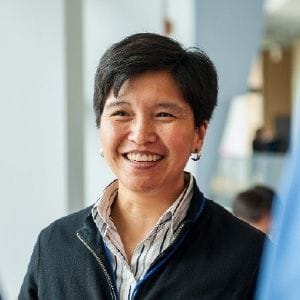
Prof. Kim Hamad-Schifferli's group works in the area of nanobiotechnology, where they develop low-cost paper sensors and diagnostics for infectious diseases. They use novel properties of nanoparticles and assay design to impart new capabilities to tests. Prof. Hamad-Schifferli obtained her degrees in chemistry from Massachusetts Institute of Technology (MIT) and University of California, Berkeley, was a postdoc and faculty at MIT, and is now at University of Massachusetts Boston.
Prof. Donatella Tondi
Top-Cited Article: Ten Years with New Delhi Metallo-β-lactamase-1 (NDM-1): From Structural Insights to Inhibitor Design
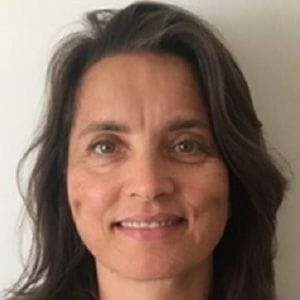
Prof. Donatella Tondi is an Associate Professor at the Department of Life Sciences - University of Modena Reggio Emilia, Italy. Her research interests include the structure based drug design and development of inhibitors targeting proteins involved in microbial resistance such as the hydrolytic enzymes beta-Lactamases and the bacterial DNA repair system SOS response.
Prof. Gary Whittaker
Top-Cited Article: Proteolytic Activation of SARS-CoV-2 Spike at the S1/S2 Boundary: Potential Role of Proteases beyond Furin
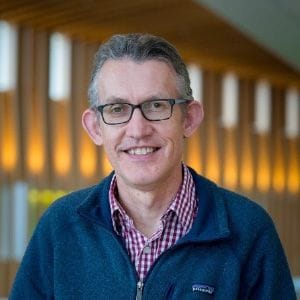
Prof. Gary Whittaker conducts research on the structure and function of viral envelope proteins—in particular how genomic mutations lead to changes in the spike glycoproteins and control viral pathogenesis, for influenza viruses and coronaviruses—SARS-CoV-1 and -2, MERS-CoV and feline coronaviruses, particularly in domestic cats and their spillover potential to urban wildlife. His work informs novel therapeutics, vaccines, and diagnostic test development.
Dr. Edgar Wong
Top-Cited Article: Rational Design of Single-Chain Polymeric Nanoparticles That Kill Planktonic and Biofilm Bacteria
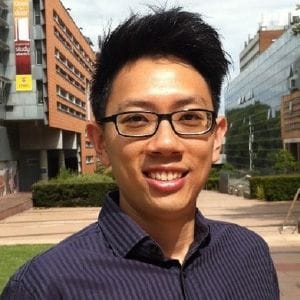
Dr. Edgar Wong trained as a polymer chemist and graduated with a Ph.D. in 2011. Since then, he has been working at the intersection of polymer science and microbiology. Currently, his group is developing new ‘smart’ antimicrobial peptides and mimics that could be activated by specific triggers with the aim of overcoming inherent toxicity issues associated with this class of compound.
Prof. William M. Wuest
Top-Cited Article: Quaternary Ammonium Compounds: An Antimicrobial Mainstay and Platform for Innovation to Address Bacterial Resistance
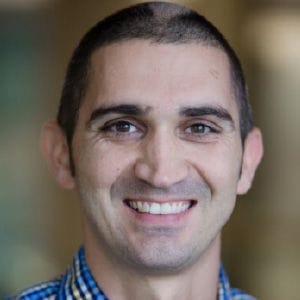
Prof. Bill Wuest, a native of NY, received his B.S. magna cum laude in Chemistry/Business from Notre Dame and his Ph.D. with Amos B. Smith, III at the University of Pennsylvania, then performed postdoctoral research at Harvard Medical School with Professor Christopher T. Walsh. His research focuses on the development of novel antimicrobials via natural product total synthesis and disinfectants.
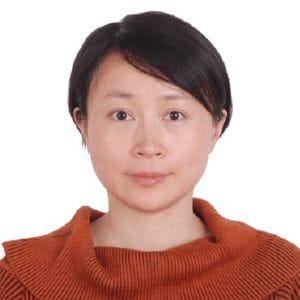
Prof. Lihua Yang is an associate professor at University of Science and Technology of China (USTC). She received her Ph.D. degree in Materials Science and Engineering from University of Illinois at Urbana-Champaign in 2008. She joined Sichuan University, in China, as an associate professor in 2008 and moved to USTC in 2011. Her research focuses on nanomedicine and antimicrobial resistance.
Prof. Jia Zhou
Top-Cited Articles:
Broad Spectrum Antiviral Agent Niclosamide and Its Therapeutic Potential

Prof. Jia Zhou is a tenured full professor at the Chemical Biology Program, University of Texas Medical Branch, and a faculty member of Sealy Institute for Drug Discovery. He is a distinguished medicinal chemist with research interests focusing on small molecule drug discovery for various human diseases including target-based broad spectrum antiviral agents.
